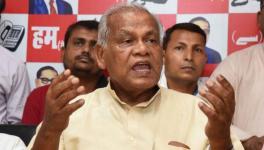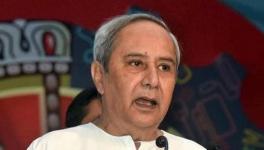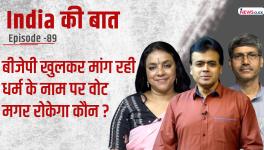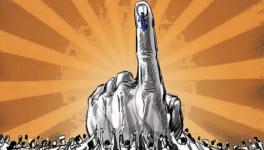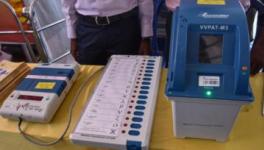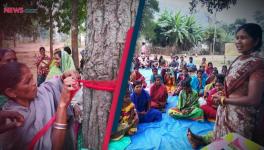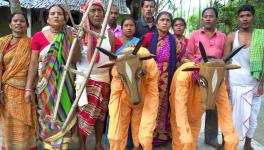CAA-NRC Protests Prove Secularism Lives on Among People
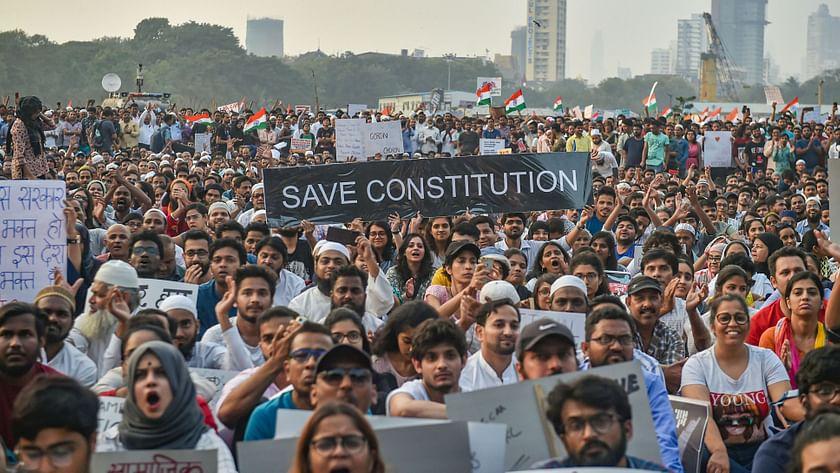
My parents were born in a village close to the Koyna Dam in Maharashtra’s Western Ghats. At the time it had no hospital, no school, no means of transportation, and there were no roads anyway. From where they lived, it would take four hours to get to the main road. Getting to the city was another story. When she was in her seventies, my ammi would tell me that she saw a radio set for the first time when she came to the city.
My parents had seen trucks, but they never knew how many varieties of passenger cars existed until they came to the city. My mother saw a school for the first time when we, her children, started going to school. In the same vein, she never knew when she was born except—like many people—by the weather conditions of that day. She did not know the date, month or exact year of her birth.
In the last days of December 2019, people across the country agitated against the government’s decision to review their citizenship on the basis of documentary proof—when they were born, their parents were born, where, and so on. Millions, like my ammi, never had these details. This is why people are so agitated. The crackdown on their protest made one thing clear: this government wants to wipe out all collective protest and mobilisation.
Ever since it came to power the Bharatiya Janata Party and its affiliates have been labeling those who protest as ‘anti-national’. For the last few weeks, we have heard the political establishment repeatedly say that every Indian will have to prove their citizenship afresh under the National Register of Indian Citizens (NRIC). They have been telling us that their Citizenship Amendment Act, 2019 (CAA) does not mention Muslims specifically, and so the minority has nothing to fear.
But the government has very clearly stated in the CAA that non-Muslims from three Muslim countries will be accepted, and Muslims will be excluded. So they are naming Muslim countries and then saying that they have not named Muslims...why does the government simply not declare that it does not accept Muslims as citizens of India?
The politics of the BJP-Sangh parivar revolves entirely around Muslims and Islam, even if they don’t specifically mention either. The difference is that with NRIC and CAA they are making not just Muslims, but all opponents of Hindutva their target.
This is also what makes the anti-CAA and anti-NRIC protests so important. The protestors are not stepping out just in support for Muslims, but for the sake of Indian democracy. They are not only challenging a government that is threatening us all with disenfranchisement and statelessness. They are also questioning a state that has been wiping out tribals in the name of development, dalits in the name of Hinduism and which is now erasing secularism in the name of citizenship. So another thing that has become obvious is how their ‘development’ was a fake slogan right from inception.
Yes, the state is all-powerful and ready to use extreme force, but the crackdown on protesting students and citizens in Delhi, Uttar Pradesh, Karnataka, Assam and other places made it evident that the state is also somewhat fearful. The police repression is more brutal this time because the state fears that if more Muslims come out to protest, and if more dalits join them, for example, then it would have to face the truth that secularism still lives on within the Indian people. The ideology to which they belong recoils at the idea that the protesters believe in secularism.
The continuing protests are an open display of India’s multiplicity and of the vast inclusiveness of its Constitution, which has given everybody fundamental rights. This is what really offends the sensibilities of the party in power.
For six years the BJP government has instilled fear among the people, especially the Muslims, that their citizenship will be abbreviated. Now the CAA and NRC are making this fear virtually come true. Thousands of citizens are living in fear of an approaching second Partition. With Pakistan India has had a bitter past experience of the tumult of Partition, but what about Bangladesh, which India was responsible for creating, and Afghanistan, with which we do not even share a border. Why is our CAA concerned about the non-Muslims overseas, but not bothered about the persecuted members of the majority religion who live there?.
In this climate of fear, which started when Muslims were killed over beef rumours, then love jihad, then the criminalisation of triple talaq, and so much more, the rumours over NRIC and CAA are further disturbing people. Someone says that Muslims will have to convert [to Hinduism] to secure citizenship. Someone else says that Muslims will present documents to prove their citizenship, but they will still get rejected because BJP leaders have been equating Muslim with “ghuspetiya”—infiltrator. These ‘ghuspetiya’, we are constantly told, are foreigners who have come to India and are raising the population of the country. So there is a sense of fear among the Muslims, that while the NRIC will exclude them, the CAA will not open its doors to them.
People of the ruling party are saying that if you want to live in this country you have to follow Hindu rashtra. This propaganda is dangerous for secularism. We are asked to trust the judiciary and eschew violence, but after the Ayodhya verdict there is a strong perception that even the courts have failed. Muslims had not even digested the Ayodhya verdict blow when the NRIC arrived to haunt them.
Remember also that for the last six years this regime has sought to erase the contribution of Muslims from the annals of Indian history. It has rewritten the educational curriculum in Gujarat, Rajasthan, Uttar Pradesh and Madhya Pradesh to give the past a communal twist. It has renamed roads, railway stations, cities and towns, to remove their Muslim names. The proponents of this regime repeatedly tells Muslims to ‘go to Pakistan’. There has been violence on the streets against Muslims and invective against them in public.
That is why, of the CAA and the NRIC, it is the latter which is more dangerous. If the two are implemented together, the consequences will be severe. To remain a citizen people will have to prove when and where their parents and grandparents were born. Procuring citizenship documents will take money, time and energy. The process itself—whatever its outcome—will foster a fear in every individual over whether one will remain a citizen or not.
But as a feminist I have to point out something critical: the gender question in the NRIC process. In Assam we saw how difficult it was for women to submit to the NRC process, especially the more marginalised women; the widowed, single, divorced, migrant, destitute, sex workers, etc, found the NRC onerous. What will now happen to ‘ghuspetiya’ women, for example, in the NRIC?
There are more issues at stake. Many women live with their families, but many have also decided how far or near their families they want to be. What the government is doing via the NRIC is imposing its own idea of family and family ties on all such women. Slowly, it will push all women’s independent choices aside and put everybody in one box. And on top of that box will be the label, “Muslim”.
The government wants to see us only as Muslims and it constantly tries to make Muslims feel aware of their identity. The NRIC is making millions feel consciously Muslim, even those who don’t want to be; who want to assert their secular identity. The fundamental doubt in the minds of Muslims is that they will not be accepted as citizens. That is why they are protesting and demanding that citizenship should not be put to the test like this—for anybody. Even for this they are being charged by the police in various states under stringent sections.
The fact is, the government which deems the faith of the minority as offensive even considers their fight for justice unfair. This is why Aligarh Muslim University and Jamia Millia Islamia were brutally attacked. It should not surprise anybody that BJP, ABVP and RSS goons were caught trying to turn the protests violent in several places. Even the BJP people have been saying that the protesters are Maoists, jihadis, politically ambitious, and so many other things.
So there is goondaism, which is followed by police violence, in which dozens of Muslims die, and to which the state turns a blind eye. In this context are the Muslims not bound to wonder what difference it will make if they submit documentary proof of being citizens?
The education, economic status and social security of Muslims was already very weak. Their social indicators and their security will now become even less important. They will not be able to demand these rights—education, livelihood, training, safety—because now they have to rustle up documents to prove their citizenship.
That is why people feel that what is unfolding in the country is ‘darr ka mahaul’ or climate of fear. And there is anger, too. These are the reasons why protests have broken out everywhere. These protests feel good as well, for they have proved that CAA and NRIC are not ‘Muslim issues’, but involve all age groups and people of all religions. A variety of protesters have supported the Muslims and stood up to the state. This is what makes these protests very meaningful. In many places I have seen leaflets being distributed that explain the dangerous implications of NRIC-CAA, which makes me think that there are many like-minded citizens.
The frightening ideology of Hindu rashtra is deploying a variety of weapons to suppress the movement against NRIC and CAA with full force. Already, they have been sending the signal that the identity of Muslims and their religion will be scrubbed out, slowly, painfully, over time, one lynching at a time...
The fear now is that the CAA will not be withdrawn, but NRIC will take time and by then the tools of protest will have been exhausted. Therefore, what the non-BJP states—West Bengal, Kerala, Tamil Nadu and Punjab—are doing must set the agenda for protests across the country. And they must protest even more strongly.
Hasina Khan is founder-member, Bebaak Collective.
Get the latest reports & analysis with people's perspective on Protests, movements & deep analytical videos, discussions of the current affairs in your Telegram app. Subscribe to NewsClick's Telegram channel & get Real-Time updates on stories, as they get published on our website.









